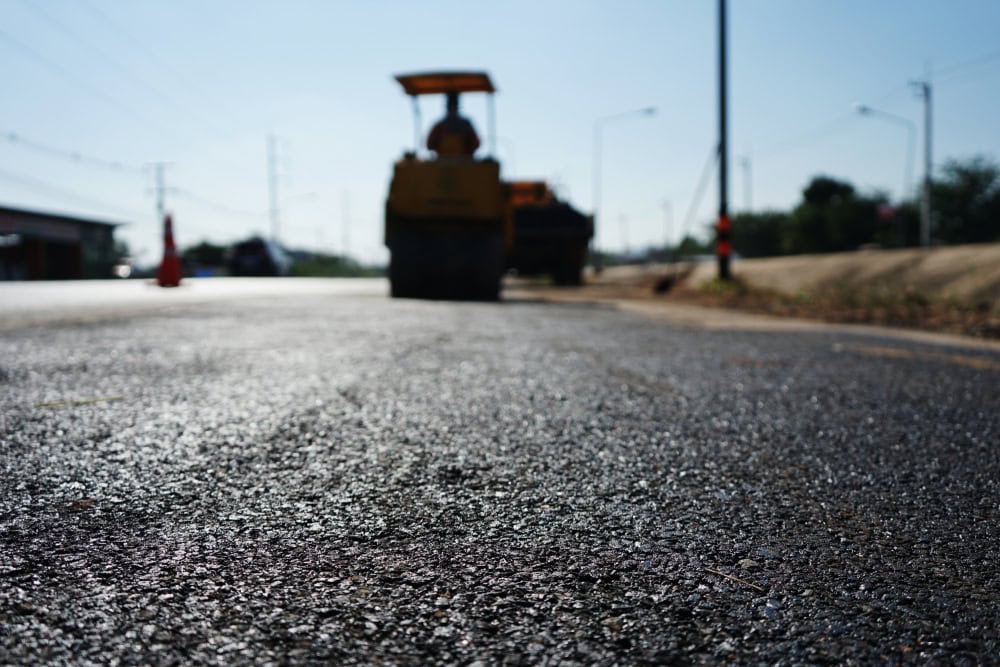For the contractors out there who anticipate being tapped for excavation, grading, paving, or any other such related jobs in construction in the near future, this guide was put together for you.
In this post, we’ll get into what the C-12 license is all about and all the requirements you should be thinking about before you apply for it.
Have you wondered about whether this license requires you to carry workers’ compensation for yourself? Have you wondered whether general contractors should hire C-12 contractors for their projects as subcontractors? We cover it all right here in this article.
What Does “Earthwork and Paving” Entail According to the C-12 License Parameters?
This C-12 Earthwork and Paving License is a specialized classification issued by the Contractors State License Board (CSLB) in California.
“Earthwork” is a term that generally refers to preparing a plot of land for construction or landscaping projects. And this special C-12 license is dedicated to digging.
Contractors with this license are authorized to take on projects involving excavation, grading, paving, and related activities.
Landscaping work is also covered by this license — including but not limited to the installation of drainage systems and implementing of erosion control measures.
C-12 contractors play a huge role in site prep, road construction, and infrastructure development.
C-12 Contractors License Requirements
If you’d like to obtain a C-12 contractor’s license, you must meet the following requirements to be considered a qualifying individual:
- The Basics
- You must be at least 18 years old.
- You must have a valid Social Security Number or Individual Taxpayer I.D. Number.
- You must be legally authorized to work in the United States.
- Experience
- To apply for this license you need at least four years of qualifying experience (journey-level, foreman, supervisor, or contractor) within the past 10 years. And that experience must be from contractor work within the C-12 trade.
- You can get credit for up to three years for technical training, apprenticeship training, or education toward the four required years of qualifying experience. Again, that needs to be C-12 trade-related experience since that’s the license we’re talking about here.
- Passing Score on the Exam
- You have to pass the CSLB’s Law and Business Exam and the C-12 Earthwork and Paving Contractors License exam. This part is mandatory. If you do not pass the test, you will be given a shot at a retake and instructions on how to schedule another test.
- Financial Requirements
- You’ll need to show that you’re prepared to take on the financial responsibility that comes with this license.
- Background Check
- Applicants going after this license should be prepared to go through a background check. It’s to check your qualifications and to ensure compliance with licensing regulations.
- Qualifying individuals who successfully pass the exam are cleared to submit a C-12 Contractors License application.
Are C-12 Contractors Required to Carry Workers Compensation Insurance?
For now, C-12 licensed contractors are only required to maintain workers’ compensation insurance in California if they have employees.
In 2026, all contractors will have to carry workers’ compensation insurance even if they don’t have employees.
According to this CSLB Industry Bulletin, the special class licenses that require individuals to carry workers compensation insurance to keep themselves covered are C-8 (Concrete), C-20 (Warm-Air Heating, Ventilating and Air-Conditioning), C-22 (Asbestos Abatement) and D-49 (Tree Service).
Should General Contractors Hire a C-12 Licensed Contractor?
Yes, absolutely! General contractors who have projects on their slate involving earthwork, grading, paving, and similar activities should strongly consider drafting up a subcontract and bringing C-12 licensed contractors into the fold.
Just a few reasons include:
- Expertise
- C-12 licensed contractors bring specialized knowledge and skills with them. Whatever a general contractor’s earthwork and paving needs, a C-12 subcontractor can come in and ensure quality workmanship that meets the standard.
- Compliance
- General contractors need to hire licensed contractors in order to remain compliant with state regulations and licensing requirements per the CSLB.
- If a general contractor or anyone without a C-12 license attempted to complete earthwork and paving construction work, it would put everyone at risk of facing legal trouble and penalties.
- Risk Management
- C-12 contractors come with insurance coverage that unlicensed contractors do not! General contractors mitigate risk when they bring in contractors with the special class C-12 license to handle this specific work.
- This covers the general contractor and the construction client financially in the event of accidents, injuries, and property damage.
- Also, subcontracting earthwork and paving tasks to C-12 contractors lets general contractors focus on the rest of their jobs. They already have a lot to manage and risks to mitigate elsewhere!
In Summary
The C-12 Earthwork and Paving Contractors License is an important one if you plan on digging into excavation, grading, paving, and other related work.
If you’re a general contractor overseeing a project that involves earthwork and paving, the best course of action is to hire a C-12 contractor to handle that work.
If, however, you’re a contractor who wants to take on that work yourself, you must meet the CSLB’s requirements before you qualify, pass your exam, and apply for the C-12 license.
A contractor holding a valid and active C-12 license has demonstrated their expertise in this specialized trade — earthwork and paving. Anyone who hires them can trust that they are in compliance with the CSLB and that they are qualified to uphold quality and safety standards on construction projects.

